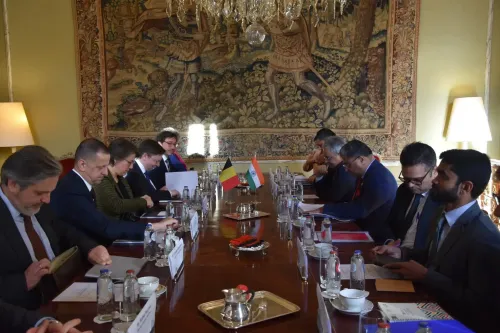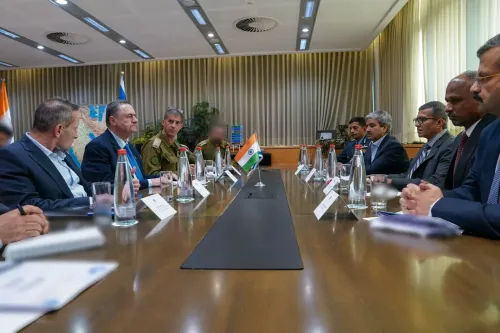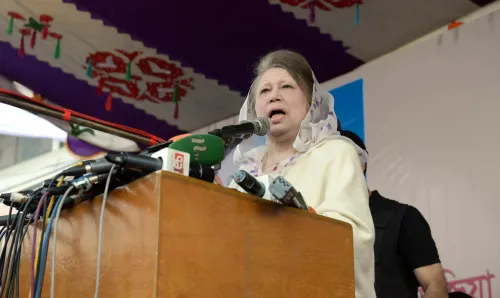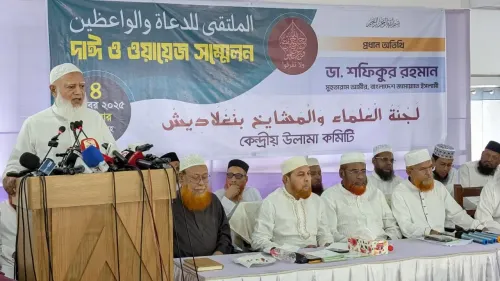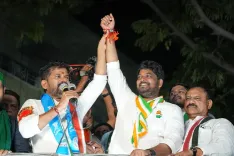Did Syrian Defence Authorities Announce a Ceasefire in Sweida?
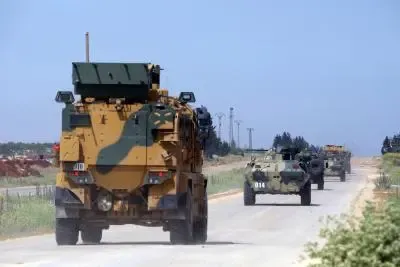
Synopsis
Key Takeaways
- Complete ceasefire declared in Sweida.
- Over 89 fatalities reported amid clashes.
- Specialized military units deployed for civilian safety.
- Efforts for a prisoner exchange are ongoing.
- Community leaders demand urgent intervention.
Damascus, July 15 (NationPress) On Tuesday, the Syrian defence authorities officially announced a total ceasefire in the southern region of Sweida following several days of fatal confrontations involving local Druze armed factions, Bedouin tribes, and government forces, as stated by the defence authority's leader Murhaf Abu Qasra.
On July 14, reports indicated that at least 89 individuals lost their lives, with around 200 others sustaining injuries amidst intensifying conflicts between the Druze militias and Bedouin tribes in southern Syria's Sweida province, according to the UK-based Syrian Observatory for Human Rights.
Meanwhile, the Syrian defence authority, in a statement published by the state-run SANA news agency, reported a death toll exceeding 30 and around 100 injured.
The violence stemmed from a lack of institutional control, which impeded security interventions. Consequently, specialized military units have been deployed to separate the warring factions and ensure safe evacuation routes for civilians, as detailed in the statement.
The defence authority urged for calm, cautioning that ongoing hostilities would only exacerbate civilian hardships, and reaffirmed its commitment to restoring stability through coordinated operations with internal forces.
Despite ongoing mediation efforts, fierce fighting continued on July 14, with significant explosions reported throughout western rural Sweida, according to the Xinhua news agency.
A representative from Rijal al-Karama, the largest armed group in Sweida, mentioned that a prisoner exchange was anticipated on July 14 between Bedouin tribes in the al-Muqawwas neighborhood and local factions to help de-escalate tensions.
Reports indicated that Bedouins had taken 11 Druze civilians from Sweida, while local armed groups retaliated by capturing five Bedouin civilians.
The conflict's origins trace back to a prior incident where a young Druze man was assaulted and robbed by armed Bedouins at a temporary checkpoint near al-Masmiyah. In response, local Druze fighters apprehended several Bedouin members, further escalating the situation.
On July 12, heavy gunfire and shelling reverberated through the city, compelling many residents to remain indoors and prompting urgent pleas from community leaders for intervention to mitigate the escalating crisis.
Recent months have seen a rise in incidents of kidnapping and armed assaults along the crucial road connecting Sweida to Damascus. Locals attribute the violence to the deteriorating security situation and the absence of state control over armed factions.

